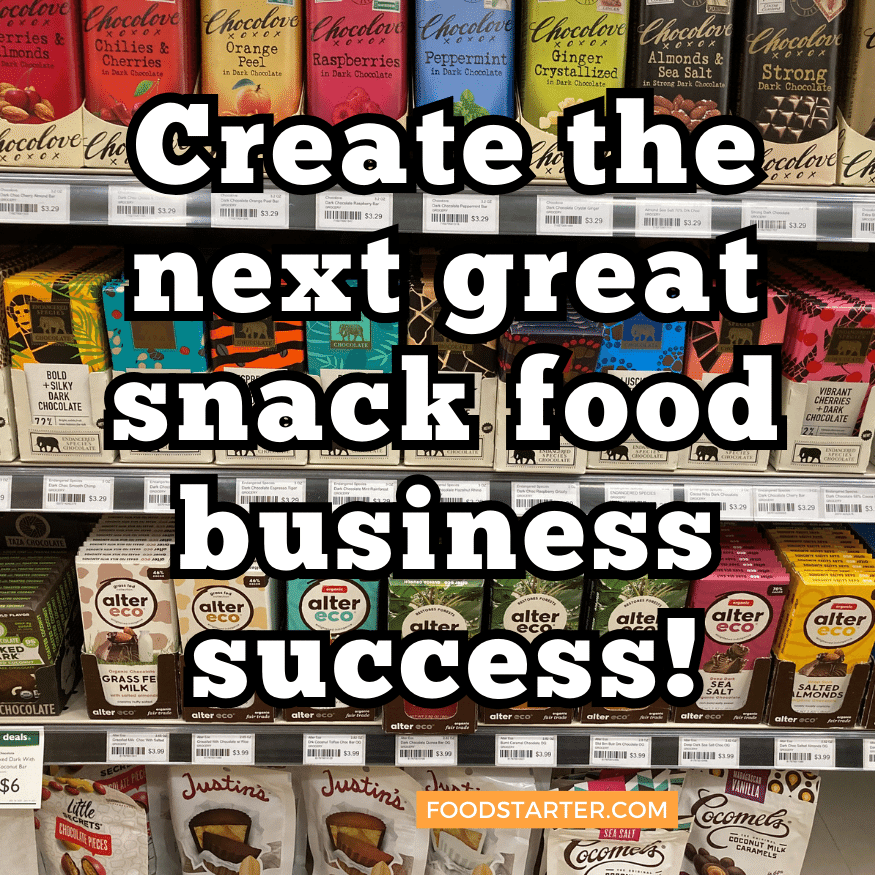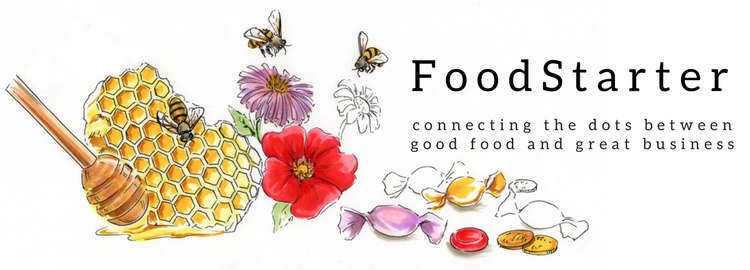FoodDive offered this tasty headline in September 2023: “Mondelez leans on startups to help fuel ambitious growth plans”
The scoop: Food brand conglomerate Mondelez said SnackFutures, its venture capital arm, plans to at least double the number of companies in its portfolio by 2030.
What is SnackFutures?
SnackFutures is Mondelez International’s innovation and venture hub.
What food startups has Mondelez acquired?
“Mondelez has made nine deals in the past few years, including legendary packaged cookie maker Tate’s Bake Shop and “good food” snack bar makers Perfect Snacks and Clif Bar, adding about $2 billion in sales.” Minimal ingredient, premium chocolate and snack creator Hu was another acquisition.
For inspiration:
- Listen to the how I built this Clifbar episode
- Listen to the how I built this Tates bake shop episode
SnackFutures has invested in companies such as Torr FoodTech, which developed a way to use mechanical pressure and ultrasonic energy to replace sugar and other binders in snacks like bars; Celleste Bio, a maker of lab-grown cocoa.
What categories of food products / startups will Mondelez be hoping to acquire?
Per the article:
- Mondelez will continue scouring the landscape to expand its reach by adding brands and businesses in untapped categories and/or geographies
- SnackFutures typically invests in companies with single-digit growth rates and about $20 million in net sales
Check out SnackFutures’ 2023 food company collaborations to get an idea of what they are currently interested in.
You can see that each company they are working with checks the boxes of solving environmental problems, health or dietary challenges, and tapping into segments of the snacking market that are not yet over-served.
I personally am excited to see that the edible, compostable spoon category is still growing.
How to get started? Look into incubator programs.
In around 2019 it seemed all the Big Food companies were seizing the chance for growth via natural food startups, by fostering brands through incubators, often called accelerators.
Food and food tech incubator programs can be a valuable resource for entrepreneurs looking to start a packaged snack food business with the eventual goal of selling it to a large food manufacturer. These programs offer a range of benefits and support to help startups thrive.
Since then, accelerators such as Techstars have developed a focus on sustainable food company initiatives focused on big problems, such as the future of food. Check out the 2023 list of companies in the Farm to Fork program.
Also, the Hirschberg Institute has been a fantastic way for food startups and aspiring entrepreneurs to connect with legendary and accomplish natural foods industry experts. Be sure to sign up for their list and attend their webinars or, better yet, their Institute in Boulder.
How can a food business incubator help?
Incubator programs can help entrepreneurs in numerous ways. In fact, no one has ever told me, they regretted being part of an incubator!
1. Access to Expertise:
Incubator programs often provide access to industry experts, mentors, and advisors who have experience in the food and beverage sector. This guidance can be invaluable for making informed decisions, developing a strong business strategy, and navigating the complexities of the food industry particularly how you will be manufacturing your products.
Many cities and towns have programs to help food startups. (Get in touch to chat about the best places to live for startiong a food business!)
2. Infrastructure and Resources:
Many incubators offer access to shared commercial kitchen spaces, equipment, and storage facilities, reducing the initial capital investment required to start a snack food business. This infrastructure can help you streamline production and testing of your product.
Additionally, the incubators may know about spaces and copackers who could have availability to help you get your products up and running and distributed.
3. Networking Opportunities:
Incubator programs typically foster a collaborative environment where you can connect with other entrepreneurs in the food industry. Building a network of peers and potential partners can lead to valuable insights, partnerships, and distribution opportunities whether online or through retail.
Accelerators will often encourage cross pollination among entrepreneurs as well as education such as workshops. Additionally, you may share booth space at tradeshows and basically feel like you are part of a community.
4. Market Validation:
Incubators often provide opportunities to test your product in a controlled environment, gathering feedback from target customers and refining your offering. This can help validate your business idea and improve your chances of success when approaching a larger manufacturer.
Especially when an incubator or accelerator is affiliated with a large food company, they might allow food start ups to leverage the resources they use for marketing and testing.
5. Business Development Support:
Many incubator programs offer training and workshops on various aspects of running a food business, including marketing, branding, packaging, and supply chain management. This support can help you develop a robust business plan and marketing strategy.
6. Investment and Funding Opportunities:
Some incubators offer access to investment networks, angel investors, or venture capitalists interested in food startups. Securing early-stage funding can be crucial for scaling your business and attracting the attention of potential acquirers.
An Oakland-based graduate of the Chobani Incubator, Nona Lim, was acquired in 2023!
7. Exposure to Potential Buyers:
Incubators often have connections to larger food manufacturers and retailers. As you progress in the program and your product gains traction, you may have the opportunity to showcase your brand to potential buyers in the industry.
All of the above can reduce your risk and increase your chances of success! By participating in an incubator program, you can reduce some of the risks associated with starting a snack food business from scratch. The support and resources provided can help you fine-tune your product and business model, increasing your chances of success.
Cons:
While incubator programs offer numerous advantages, it’s important to be aware of potential drawbacks:
- Equity and Commitment: Some incubators may require equity in your business or impose specific terms and conditions, which could affect your long-term ownership and control. This is more likely to occur when you partner with one of the large food businesses, or a tech centric accelerator.
- Competition: You’ll be working alongside other startups, which means you may face competition for resources, mentorship, and investor attention. Don’t let this be a reason why you avoid an incubator. Over the years food businesses, who collaborate and have friendly competition have enjoyed their lives and found success doing so.
- Limited Duration: Incubator programs typically have a set duration, and you’ll eventually need to transition out of the program. This can be challenging if you haven’t fully achieved your goal of selling to a larger food manufacturer. However, what you have learned in the connections you have gained will help you, as you continue to grow and evolve your business on your own or with partners.
Incubator programs can be a strategic step for entrepreneurs aiming to start a packaged snack food business with the intent of selling it to a large food manufacturer.
Next Steps
- Be sure to check out SnackFutures.
- Try to attend the natural product expos and Fancy Food shows to find connections and to chat with different incubator programs as well as regional food support hubs in person.
- The Good Food Foundation conneects craft food makers in different categories. While many are focused more on local production and where the ingredients are sourced from, you never know what gems you will lean by living in an area that is focused on creating delicious, responsible food products..as long as you have a plan for how they can scale!
- Check out my update on Good Food Great Business
Feel free to get in touch to discuss where you are in your food, business journey, where you are located, and anything related to your future in food!
As a California real estate agent, it has been so rewarding and so much fun helping food producers find manufacturing space both in our state and in other states.







